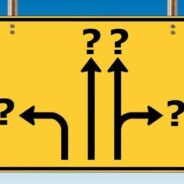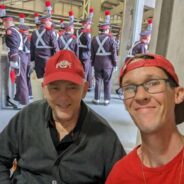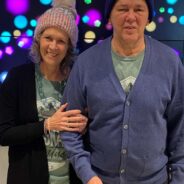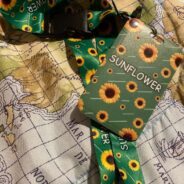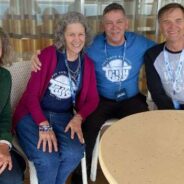Snapshots of Dementia: Great Expectations
Geralt on Pixabay Don’t have unrealistic expectations of your spouse. I had that advice drilled into me even before my marriage. I learned not to expect Tom, who had been raised in a far different family setting from mine, to do, say, or think things exactly as I did. I learned not to expect Tom, who was a pastor and spiritual leader, to be the perfect husband and father any more than I could be the perfect wife. And I learned that neither of us should expect the other to change. Instead, Tom and I learned, albeit slowly and sometimes painfully, to talk and pray through our differences. Sometimes he changed. Sometimes I changed. More often than not, we both did. Having an increasingly loose hold on expectations has helped me survive without too many scars before and since our living-with-dementia journey. I say “increasingly loose” because as Tom’s dementia changes him, I must change my expectations too. I wrote about how he stopped taking care of our lawn a few years before we knew he was LWD. Once I realized he was not going to take care of it (although I had no idea dementia was a factor), I stopped expecting him to do so. But when we packed up our Florida home, downsized, and moved to South Carolina in November nearly four years ago, it bothered me somewhat that Tom didn’t help at all. He didn’t sort a single item or pack a single box. In fact, his attempt to box up the theology books he sold to an online bookstore became an organizational disaster that brought me hours of extra work. That incident helped lower my expectations. I understood: Tom could no longer pack. And I didn’t want him to. At that time, since we didn’t have any sort of dementia diagnosis for Tom, I was still operating in a not-so-magical neverland, not knowing what he could and couldn’t do or what I should and shouldn’t expect. After he lost three jobs in a row, I decided he could no longer work. I no longer expected him to do so. After he had some near-misses with the car, our family decided he could no longer drive. We no longer expected him to do so. And after both of these changes and more, I decided to move closer to family—whether or not Tom’s doctors ever agreed he had a problem. I no longer expected him to have the wisdom to make such a big decision in a wise, caring way. All of these decisions shaped our expectations of Tom. But none of us had a real idea how much the expectations would continue to shift as we went along. Here are some of the ways even my recent expectations have changed: — I don’t expect Tom to remember anything I tell him. Sometimes I’m still caught off guard when he forgets something I’ve said only moments before, but I shift quickly into reality mode. One evening this week, I told him I was going out to the freezer to get something I needed for dinner. When I returned less than a minute later, he was making a peanut butter sandwich for his dinner (which I’ve never asked him to do), surprised that I planned to prepare anything. — I don’t...
read moreSnapshots of Dementia: How Firm Thy Friendship
by Andrew Pieper The silver sousaphone shone like a mirror in the Saturday afternoon sun as the band member high-stepped out of formation to dot the i with an exaggerated bow in the iconic Script Ohio, one of college football’s greatest traditions. The 100,000-plus fans in attendance roared their approval, and my dad smiled, enjoying once again the grand spectacle that is Ohio State football. Arriving in Ohio Friday afternoon, we drove an hour north of Columbus to visit the famous Ohio State Reformatory, which not only had served as a real prison until 1990 but also as the filming location for The Shawshank Redemption among other Hollywood movies. The chairlift hummed as it carried me—along with my dad in his wheelchair—up the side of the stairs. The wheelchair was a new addition to our travels. My dad is still able to walk with a walker, but he does so slowly and often with great pain. We decided to borrow a wheelchair for this trip, which made the whole experience much easier for both of us. Once inside, I purchased tickets for a guided tour. These tours are public and quite popular, often with up to forty people in attendance. But once our guide saw my dad in his wheelchair, he instructed the front desk to close the tour to make it easier for us to take the elevators up and down inside the prison. For the next ninety minutes, we had a private tour of every level, our guide sharing equal amounts of Shawshank history and that of the prison itself. After returning to Columbus and checking into our hotel, I made sure to connect my dad’s iPad to the Wi-Fi so he could play his online golf game. Regular routine has become an important part of his life, and the golf game is a big part of that routine. In fact, when I first asked him if he would like to go to another Buckeyes game, the first thing he asked was, “Will I be able to play my golf game?” Once he finished that day’s round, I drove him over to the Ohio State campus to watch the band rehearse. I could tell he was tired, but he seemed to enjoy the experience, tapping his hand in time with the beat. The following day, we arrived on campus three hours prior to kickoff. We were fortunate enough to grab one of the last parking spaces before the handicap lot was completely full. I wheeled him inside St. John Arena, where the band holds its skull session prior to every home game—a pep rally where the band plays a few songs, the football team is present, and the coach gives a speech before everyone heads to the stadium. The excitement built as, seated only a few dozen feet from the band and the team, we enjoyed the performance of several Ohio State classics, including “Hang on Sloopy,” with everyone, including my dad, joining to form the letters “O-H-I-O.” Rather than fighting our way through the tens of thousands of people walking toward the stadium as we had the previous year, we were able to board a handicap shuttle that dropped us right outside the gate. Once inside, we attempted to make our way to...
read moreSnapshots of Dementia: Have Dementia, Will Travel (Part 2)
Tom and Marti, Alaska 2023 We chose the trip together. We talked about it for months. We met with our friends to plan our off-ship excursions. But even the week we left, Tom didn’t remember what day we were going, what city we would fly into, or any of the other details of our Great Alaskan Adventure cruise. His dementia has progressed to the point that I can’t assume he remembers—or even understands—much at all. He still surprises me sometimes with what he does process well, but he surprises me much more often with what he doesn’t. This happened with the Steven Curtis Chapman part of our cruise: short sessions of Bible teaching, worship, reminiscing and even a Q&A with the Chapmans. We skipped a “Stump Stevie” night because of its late-night scheduling, but we attended all the other sessions. Tom at one of the SCC sessions For some foolish reason, I thought an artist who meant as much to him as SCC would somehow move him to engage. A nice idea, but that’s all it was. More accurately, it was magical thinking on my part. He didn’t seem unhappy, and he always said he was enjoying the trip—but it was hard to tell from his almost-standard expressionless face. One thing he did enjoy, however, was mealtime. This adventure had the standard cruise blessing (and curse): wonderful, plentiful food. We usually ate in a dining room with multiple buffet lines. The choices, of course, were too much for Tom. Sometimes he walked with me as I filled his plate other times, he sat with our friends while I got his food. He’s never been a foodie, but in the past, he would have especially enjoyed the various international options offered. His favorites on the cruise looked not-so-suspiciously like what he most enjoys at home: Breakfast omelets. Cheeseburgers (So. Many. Cheeseburgers.) Macaroni and cheese. Cookies. And as a special bonus blessing, ice cream. Although I did get him to venture away from cheeseburgers sometimes, he seemed happiest with his familiar favorites. Sure, it was way more red meat than he would have had at home, but the cruise only lasted a week. And a fortieth anniversary only comes around once. Tom had some physical challenges on our trip as well. He uses a walker because of a back problem. He can’t have the needed surgery because general anesthesia could exacerbate his cognitive decline. The relatively short trips around the ship required far more walking than he normally does in one day, so his back was already tired. Excursion days—although we chose those with only minimal walking—exhausted him. We almost always had a long walk as we left the ship, so the “few steps” promised for the excursion became many more. If I had known this in advance, I would have brought a wheelchair rather than a walker. The day we went on the White Pass & Yukon Railway resulted in terrible physical pain for Tom. We met in the same large room that hosted the SCC concerts, so that part seemed easy. But after we arrived, the people in charge hurried us off the ship to catch trams to the waiting buses that would take us to the train. Avoiding the normal long walk from ship to bus might have been a good thing. What wasn’t good?...
read moreSnapshots of Dementia: Have Dementia, Will Travel
Happy anniversary, baby!” I told Tom as we woke up on board the first day of our Great Alaskan Adventure Cruise. He didn’t respond. “I’m saying that because we’re on this trip to celebrate our fortieth anniversary. And I’m going to tell you that every day of this trip!” He smiled. But beyond that, I never received a response any of the mornings when I wished him a happy anniversary. One day, however, he surprised me. He proudly told our friend Hardy at lunch, “Today is a special day. It’s our anniversary!” Not quite. But I knew he had listened to my greeting after all. And this time, I was the one who smiled. Just as they do at home, small incidents like these embedded themselves in our trip to Alaska. When someone is living with dementia, the disease is the ever-present but unwelcome guest. Because we traveled across the country, dementia did too. Because we went on a cruise, dementia came along. And when we came home, dementia joined us—because it never left. As I wrote a few weeks ago, the presence of our friends Hardy and Barbara made the entire trip much more doable—and much less stressful—for Tom and me. Think about just one scenario: restroom use when someone is LWD. I typically walk Tom up to the door of the restroom and wait outside, but it still scares me because his memory is so short. What if he forgets that I’m waiting for him? Or doesn’t remember which way to turn so he can exit? Family restrooms are helpful not only for those with small children, but because they are both rare and busy, Hardy’s assistance proved invaluable, beginning in the airport before we left. Before the trip, I learned something that also helped us: The sunflower is a globally recognized symbol for those with hidden disabilities, and many airports—including the two we would visit—train their employees in the Sunflower Program. Before our trip, I bought Tom this lanyard; he wore it to hold his state-issued ID. Because no one ever mentioned the sunflower, I don’t know if its presence helped us or not. But it made me feel much safer to know he was wearing a symbol that airport workers would recognize, especially if we somehow got separated. (The only time that became an issue was on the way home, when workers took him one way to get through security and forced me into another line, then delayed me while they searched one of our bags. I don’t mind saying that that was a scary few minutes.) I brought along two more items that made the trip much more pleasant for Tom: his iPad and his weighted blanket. I knew he would need the iPad to play his daily word games and online golf game; preserving at least this much of his normal routine can help a lot with the agitation that often accompanies travel for people LWD. Although I had purchased Wi-Fi ahead of time so he could keep playing his games during the cruise, the signal was generally not strong enough to allow him to play the golf game. He accepted this change better than I feared, partly because we were so busy with other activities. He could still...
read moreSnapshots of Dementia: The Great Alaskan Adventure, Part 2
(L-R) Sheryl, Marti, Tom, and David in our first meeting on the ship Our Great Alaskan Adventure taught us—in more ways than one—how thankful we are that “I’ve Got a Friend Like You.” We knew we’d be traveling with Barbara and Hardy (see Part 1 of “The Great Alaskan Adventure” if you missed it.) But we didn’t know that we’d also be traveling with friends we have known for more than thirty years. David and Sheryl Neal were members of the second church Tom pastored, located in Southern California. Their three children are close to the same ages as our oldest three children, and when our fourth child and third daughter decided to come more than five weeks early, the Neals got the early-morning phone call and child-sitting duties. David and Sheryl have remained our friends through the many years and moves. Whenever we went back to the area, we made sure to visit them, even staying in their home for a few days on our last trip there. Sheryl and I have stayed in touch via emails, phone calls, and texts about joys, sorrows, and prayer needs along the way. The day before we left for Seattle, where we would embark on our cruise, one of our foster grandchildren (who happens to live with that fourth child of ours) required emergency surgery. Of course, I texted Sheryl to pray. In the process, I mentioned that I was out running final errands for our cruise, which apparently I’d forgotten to tell her about. “Wait, we leave for an Alaskan cruise Friday,” she texted back. I didn’t even consider the possibility that it might be the same cruise. I knew other couples who had gone to Alaska this summer, and I also knew multiple cruise lines cover that route. Still, Sheryl asked me to share the details (see text exchange below). I didn’t actually faint, but I’m sure I came close to it. And I’m thankful we have the photos to prove that we ended up on the same ship. For them, this was a Celiac Cruise; Sheryl has navigated her way through celiac disease for some time, and the wonderful invention of unique cruise, complete with a private dining room and chef, has made travel possible for her once again. Will Tom remember us? the Neals wondered ahead of time. When Sheryl mentioned this to me, I assured her he would. He might not remember the names of the couples he sees in Sunday school every week, but he would remember these dear and longtime friends. I had no doubt. We all boarded the ship Saturday but couldn’t connect until Sunday. I had told Tom before we left that David and Sheryl would be on the ship, but that day, he didn’t realize we would round a corner and see them coming toward us. His eyes widened in shock. “I HAVE MISSED YOU SOOOO MUCH!” he told David as he wrapped him in a giant hug. We sat down and talked, and talked, and talked—at least David, Sheryl, and I did. Tom mostly sat and listened, happy to enjoy our time together in his own way. We had excursions at opposite times the next day, so, since shared meals weren’t an option, we decided another meeting would have to wait till...
read more



